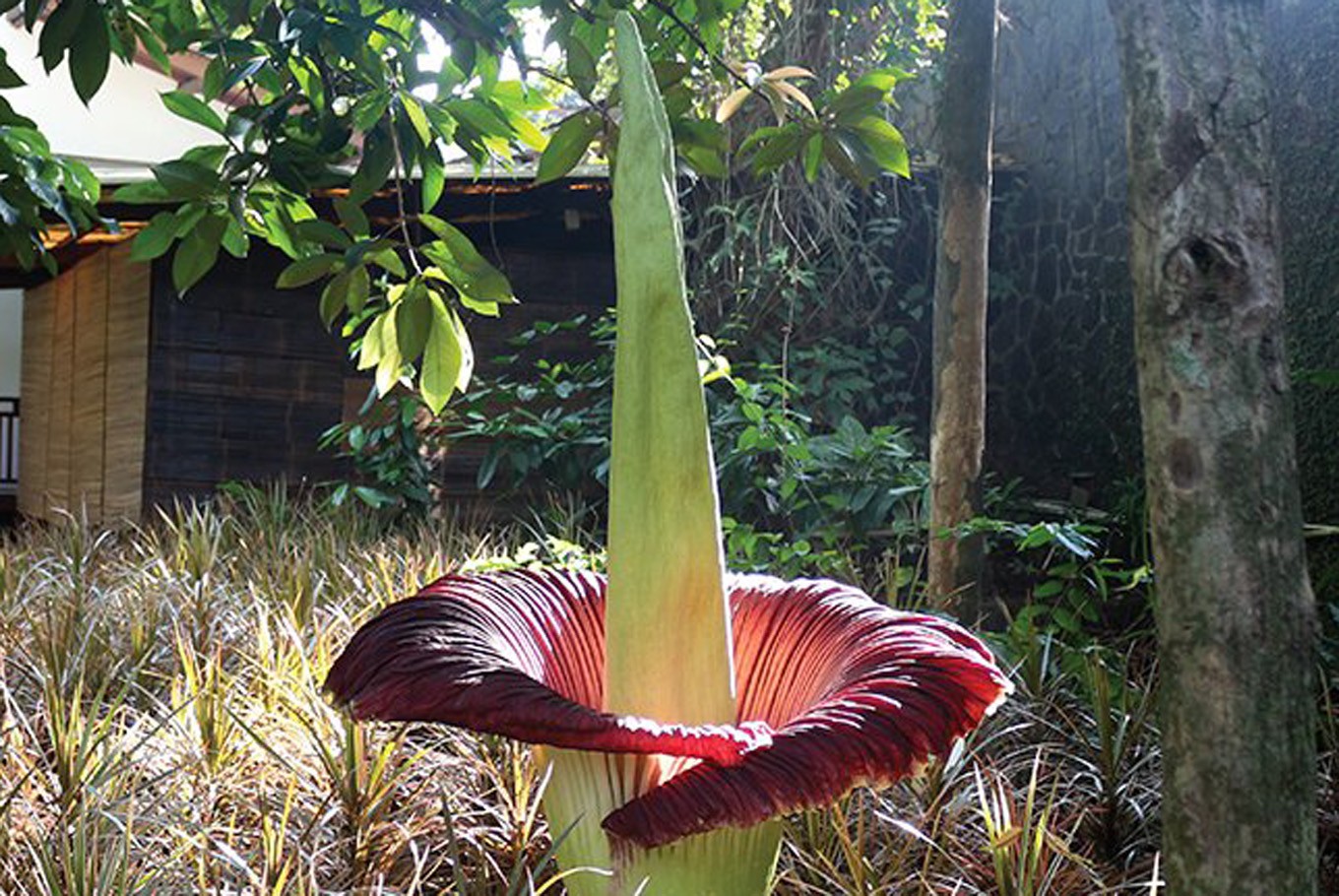Bengkulu University researchers cultivate two corpse flower species
Change Size
 The giant flower, which is known for its pungent odor, is 1 meter in diameter and 2.5 m tall and only blossoms for 48 hours. (Rumah Perubahan's official Twitter/File)
The giant flower, which is known for its pungent odor, is 1 meter in diameter and 2.5 m tall and only blossoms for 48 hours. (Rumah Perubahan's official Twitter/File)
R
esearchers at Bengkulu University have cultivated two species of corpse flower, which are endemic to Sumatra, to make it easier for the public to see and observe the plants.
"The species that we have cultivated are the Amorphophallus paeniifolius, also known as suweg, and Amorphophallus titanium, which can reach more than 2 meters in height," Yansen, a researcher at the university's Agriculture Faculty, said on Tuesday, as quoted by tempo.co.
Yansen said in the cultivation effort of the flowers, also known as titan arum, the research team moved the bulbs from their natural habitat to the forestry laboratory at Bengkulu University.
"In 2009, the first cultivation was carried out by removing suweg tubers, which grew in residential areas in Bengkulu City. Currently, the tubers that we moved first are blooming," he said.
Read also: 3-meter-high corpse flower blooms in Sinabung
The suweg can be bred from its tubers, which are round and flat with a diameter of 40 centimeters, 30 cm high and weigh around 5 kilograms.
"Besides being able to be cultivated, corpse flower bulbs can also be processed into alternative carbohydrate sources, but they need to be processed through various stages because the sap can cause skin irritation," Yansen said.
He explained that Sumatra has 20 of the approximately 200 species of corpse flowers that are known to exist throughout the world. "There are around 10 species of corpse flowers in Bengkulu," he said.
Yansen said the plants could be cultivated to attract tourists, who are drawn to the unique pungent-smelling plant.
"To turn corpse flowers into a new tourist destination, it is necessary to build a botanical house. There, visitors can see the nursery process right up until the flowers bloom. This will certainly be very attractive for tourists," he said. (liz/kes)









